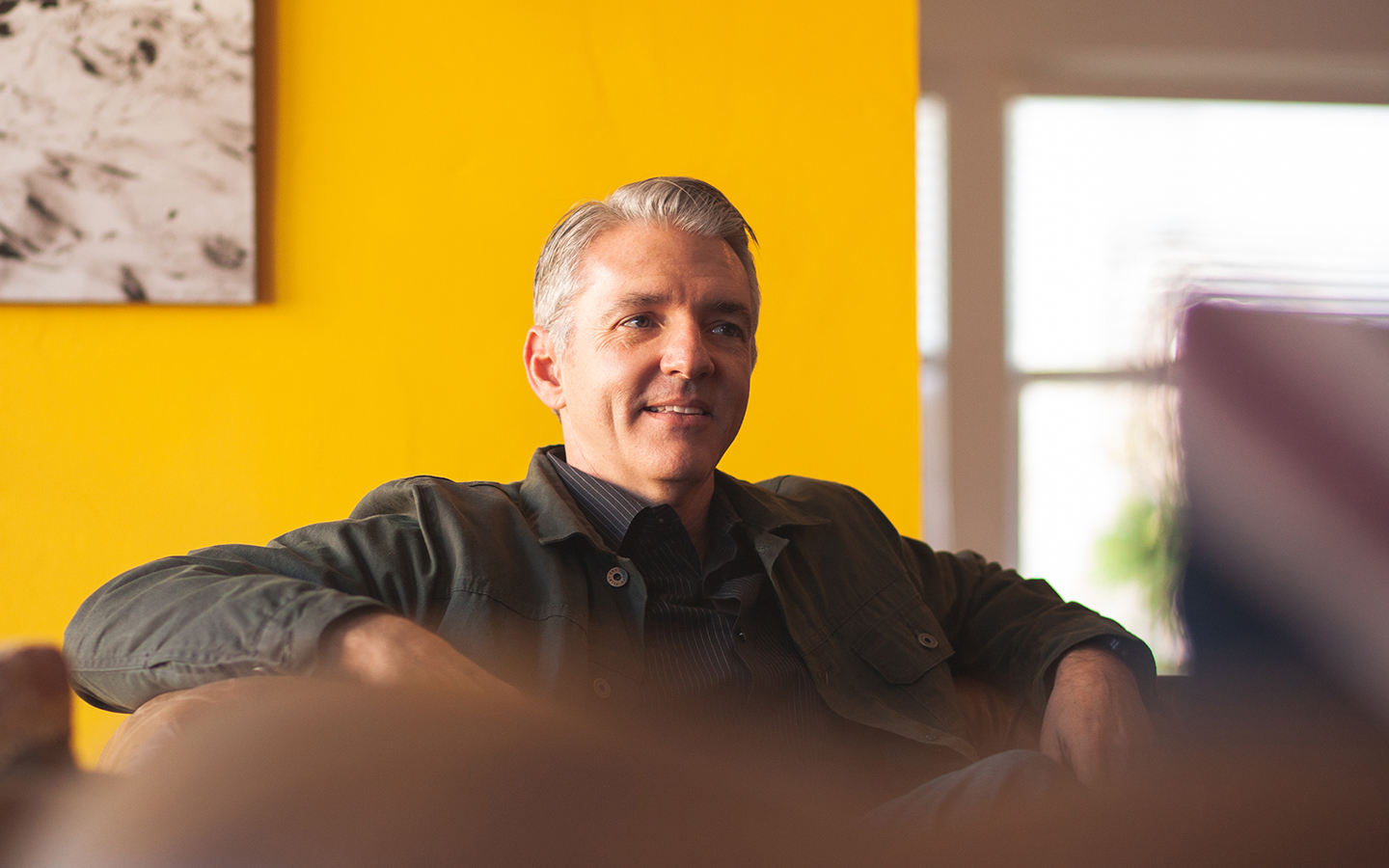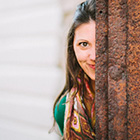
Uncommon Person: Neil Bellefeuille
Neil is Uncommon.
Neil Bellefeuille is a partner and senior design thinking strategist at BILD, an innovative consulting firm focused on the emerging Environmental, Social and Governance (ESG) space. Neil spent the early part of his career working as a partner at Bulldog Drummond before co-founding The Paradigm Project, a social enterprise that builds distribution and sales networks in emerging markets. He is also an avid reader, outdoor adventurer and father.
We had the opportunity to ask Neil a few questions as a part of our new Uncommon Person series.
KICKOFF QUESTIONS
Bulldog Drummond: What value, phrase or uncommon truth do you live by?
Neil Bellefeuille: Sounds trite, but that you can teach an old dog new tricks if you work at it. I love the idea that we are learning beings by nature and that we can choose to change and grow. I didn’t really start doing this intentionally on a personal level until late in life, so I’m still an amateur by any measure, but when you start examining your life and seeking enduring change in the areas you want to be different, it kind of enriches the whole operating system. The whole world is out chasing quick fixes and easy outs. Even if you find them from time to time, I’ve just found for me, that’s not really where life and peace live. Sometimes they live in the hard work of choosing a different road and learning how to walk it well. So, I am learning how to learn and grow and trying to make that a way of life.
BD: What accomplishment in your life are you most proud of?
NB: Hands down raising three amazing young men. My wife dedicated a huge chunk of her life to doing that full-time, so when I say that, I don’t mean it as a statement of personal accomplishment in the traditional sense. They’re not perfect by any stretch and I am certainly not. I mean it more in the way that I’m proud to have been part of speaking into their lives and teaching them to make positive choices—and just building adult relationships with them. It has been the longest, most interesting, most difficult assignment of my life, and it’s not done yet—won’t ever be.
UNCOMMON IDEAS
BD: What gets you out of bed in the morning? What’s your purpose?
NB: I’ve actually done a lot of work on this personally, so I have a kind of packaged answer. It’s very real and authentic, but it sounds prepared because it’s the result of a lot of introspection—I unearth deep insights and inspire great ideas that empower people and companies to live into their full potential.
BD: What’s the most useful question you ask often? Why?
NB: I don’t know that I have a key question as much as I have a way of asking questions that asks people to look at their own thoughts and perspectives from a different angle. I’ve always been interested in the stuff that lives between the lines—what are we really thinking when we say something?—because it’s often not exactly what we’re vocalizing. And I have found that questions are a really powerful tool because people really do love to tell their personal stories if you invite them to do so. And questions that go a level deeper or that come at a subject from the side instead of from a more traditional angle, sometimes help people think about and tell that story in new ways that bring new interest to it for them and allow the rest of us to understand it in more meaningful ways. This is at the heart of human-centered design for me.
BD: What makes you uncommon?
NB: I think the fact that listening is my first and preferred form of interaction. That’s partially just a default because I am definitely an introvert and an observer. I am just naturally more comfortable coming into a situation, observing, listening, building a base of understanding, and then, if I have something meaningful to add, adding it in that context. And I’ve noticed that there is a real, tangible power in silence that is pretty amazing. I will often sit in a meeting and brainstorm in silence—and observe, contemplate, construct ideas, etc. and just absorb what’s going on around me because that’s the way I process and think. And, invariably at some point in that process, someone will stop the conversation and purposefully call me out saying something like, “You’re being awfully quiet. What do you think about this?” And in that, I am given an unusually focused and powerful spotlight to share my thoughts after they have been fully formed and organized. It’s become a really positive way of working for me because I’m not competing for attention and I am often invited into the conversation in a way that offers space to share insights and ideas deeply and thoughtfully.
BD: Can you tell us about an experience that made you who you are?
NB: I started working full-time while going to school at a very young age (14). I wouldn’t recommend that, but it was extremely formative for me. I learned how to adapt and to work in very tangible ways and in sometimes fairly challenging environments. But it created in me a belief that I could make my own way and build something out of nothing and survive in almost any circumstance, and I think that has helped me greatly as an entrepreneur building and managing companies through some very hard times.
UNCOMMON ACTIONS
BD: What are you working on that you are excited about?
NB: I am launching a new consultancy focused on helping companies create more value for more people by doing less harm and more good. We’re on the cusp of a major movement in business—one that is going to see capitalism evolve into a more sustainable, responsible force in the world. I have 10+ years working in the emerging markets leading a social enterprise that brought basic goods to the last mile in Africa and Central America. And I have 20+ years working as a design thinker, strategist and management consultant, advising a wide array of world-class brands on how to build great business models and brands. And I have some amazing partners at the table with me. So, I’m just excited to see how we can be a part of facilitating that movement and bringing mid-market companies into the next wave of business to create a better world. Sounds like a bad ad, but the reason it’s so compelling is that it’s real, and it’s happening, and we’re on the forefront of it.
BD: Tell us about a positive daily habit you have.
NB: My faith is at the heart of who I am, so I’m up early every morning reading and spending time with Jesus. Just sets my day up well and becomes the platform from which that learning and life change I talked about earlier can happen.
BD: When you look back, what impact will you have made in the world?
NB: You know, my hope is that there are people and companies walking through this world who have in their memory moments of insight and clarity that we shared together that changed their trajectory or thinking in some way that made a real difference to who they are. Some of my most treasured moments in life have been in bumping into people whom I’ve worked with or known socially and to hear them share about something I said or noticed that became an important marker for them, even if for me it was just a simple conversation or comment at the time. I can’t think of anything better than to be a person who helped nudge people onto new paths at times when they were seeking them.
UNCOMMON WORLD
BD: Considering the state of the world, what is your biggest observation about humanity / society?
NB: Yeah, we have a massive social experiment going on, don’t we? There are so many stresses on people right now—some very tangible and threatening, others kind of lurking in the background. Times like these bring out the best and the worst of us, which is what stress tends to do, right. It pushes us to the outside edges of the spectrum of emotions and feelings? I’ve seen people in front of me in line at a grocery store getting ticked off that the clerk who won’t bag their groceries in the reusable sack they brought or let them buy the last 20 cases of sparkling water, and people offering to go to the grocery store and run errands for others who are scared to do so. So that’s a microcosm of who we are under stress right there!
I think the most remarkable thing this is demonstrating is just how wired we are for human contact and interaction. We need each other far more than we realize in ordinary circumstances. And while I’m grateful to have video contact, so much of our understanding of each other and our emotional connection to each other comes from body language and senses that sit behind voice and sight, and we just don’t fully realize it until they’re removed from us. So I think (and hope) people are developing a deep appreciation for the simple freedom to go sit and have a cup of coffee with a friend and how that fills their soul.
BD: Have you learned anything new about yourself during this time?
NB: That’s an interesting question because I have worked remotely for almost 15 years, so much of my workday hasn’t changed radically. And I’m someone who would call themselves an introvert—not so much that I don’t like being around people, but that I refuel with alone time and quiet time. But even this introvert is craving some face time with the people I care about! One last thing that’s not really a learning but an inventory. As a family, we’ve spent a lot more time together and lived in a way that feels very basic and present. And some of that is hard. And some of it is really good and valuable. So we’re talking about what we want to carry out of this wilderness with us—what is enriching our lives and bringing us closer that we can bring back to normal when we head back there. I think just being aware that there are things we love about this hard time is a cool thing to have learned!
Watch for articles written by Neil focusing on sustainability and social responsibility from a business perspective in the coming months.


Uncommon Person: Chad Hutson

Our Internal Learning & Impact at Bulldog Drummond

The One Decision by Employers in 2021 that Means Everything

What I Wish I Knew

Standing Up Inside

Uncommon Person: Gregg Imamoto

Five Things Every Company Should Know about ESG

Redefining Value

Uncommon Person: Chris Baréz-Brown

It’s Time For A Whole Lotta Common Good

Did You Choose Humanity?

Uncommon Partnership: Violux

Here’s How

Uncommon Person: Santhosh Nair

Designing Strategy For A Complex World

Responsibility & Relevance for Brands

